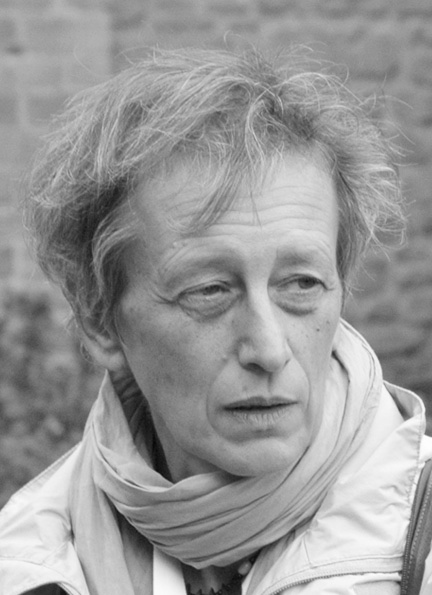The seminar “Change of scale – Change of nature” will welcome
Catherine Mougenot
Les vaches laitières sont-elles scalables ?
Are dairy cows scalable?

Catherine Mougenot is a sociologist and a doctor in environmental sciences. She is a teacher and researcher at the Department of Environmental Sciences and Management (Arlon Campus Environnement), Socio-Economy, Environment and Development (SEED), at the University of Liege. Her research interests include nature management practices, invasive species issues and human-animal relations.
“Scalability is the ability of a project to change scales smoothly without any change in project frames. (…) It is a technical term designating an operating logic that can be maintained at any scale, in particular that of an IT device that remains operational regardless of the number of users involved. » Anna Tsing
So, are dairy cows “scalable”?
Certainly! Although…
During this seminar, we will go through the history of dairy cattle breeding with the objective of pointing out the advances that make it a “scalable” process as well as the “work” it implies.
We will focus on the modes of selection: a mode of selection is a way of creating and reproducing the value of animals: How can this be commensurable?
We will review four sequences (four arrangements) of this story.
- The notion of local breed or breeding in the old regime… What do we really know?
- The appearance of the modern concept of breed, its application through herd books, animal competitions, the first scoring tables.
- The quantification of livestock. The post-war period and the beginning of progeny testing. The “French farm” becomes a large-scale experimentation laboratory that contributes to genetic progress and from which all breeders can be both suppliers and beneficiaries.
- The reading of DNA applied through genomic selection (SAM: Selection Applied by Marker): a separation between privatized genetic information and animal management.
These four sequences follow one another, but they also overlap… So, are dairy cows “scalable”? Have they “changed their nature”? These questions will be the subject of discussion…
The research seminar « Change of scale – Change of nature »
The generalist and interdisciplinary seminar “Change of scale – Change of nature” is organized by the CSI and the Eco-anthropology laboratory of the Natural History Museum by Léo MARIANI (MNHN, Eco-anthropology), Julien BLANC (MNHN, Eco-anthropology), Brice LAURENT (CNRS, CSI) and Jean GOIZAUSKAS (Mines Paris, CSI). Postulating that changes in scale (re)condition the nature of things as well as the observations made of them, this seminar intends to raise the issues of measurement and commensurability, of growth and degrowth.
Read more about the seminar and the 2022 program.
Details and registration

Date: May 12, 2022, from 3:00 pm to 5:00 pm
The session will be held (in French) in a hybrid format at MNHN, 45 rue Buffon, 75005 Paris, grand amphithéâtre d’entomologie, located at the entrance of the site on the first floor of the first building on the right.
The seminar is open to the public upon registration. If you are interested in attending, please fill out this form.
An invitation link to join the seminar by videoconference will be sent to participants a few hours before the event.
Contact: Léo Mariani or Jean Goizauskas
Références :
Mougenot C., Petit S., Gaillard, C., 2020, Le « coup d’oeil » de l’éleveur est-il menacé par l’élevage de précision ? Activités, 17 (2), p. 1-22.
Gaillard C., Mougenot C., 2018, Les éleveurs de Montbéliarde au carrefour de l’innovation génomique. Entre adhésion et résistance, solidarité et concurrence, Economie Rurale, 363, p. 25-39.
Gaillard C., Mougenot C., Petit S., 2017, La vache Montbéliarde emportée par la génomique, Sesame: Sciences et Sociétés, Alimentation, Mondes Agricoles et Environnement, 2, p. 60-61.
Mougenot C., Gaillard C., 2017, Faut-il génotyper « nos bonnes vaches » ? Une approche de la génomique par les contradictions, VertigO: la Revue Electronique en Sciences de l’Environnement, 17 (2).
Photo sources: Catherine Mougenot, SEED, Université de Liège.

